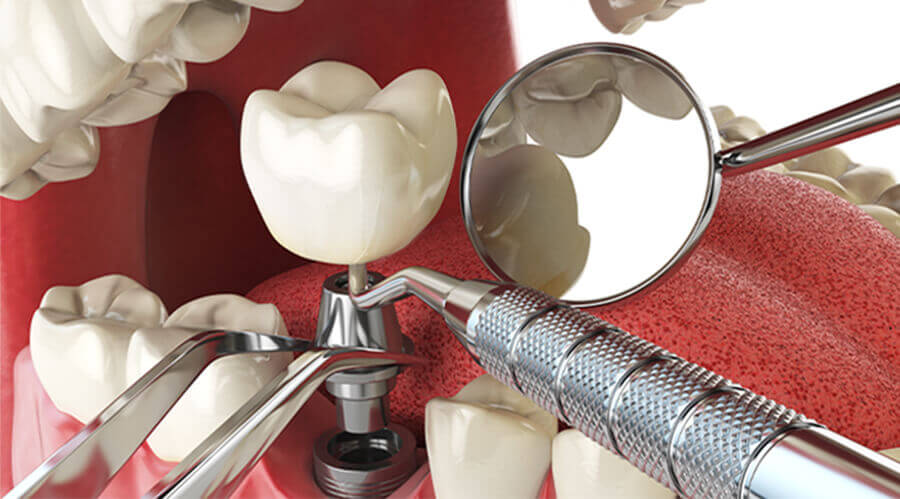A dental implant is suitable for treating tooth loss. It is a good choice for those who have lost one or more teeth due to decay, injury, or periodontal disease.

Dental implant is one of the most effective methods for treating tooth loss. It is a good choice for those who have lost one or more teeth due to decay, injury, or periodontal disease. It can achieve excellent aesthetic and functional results.
The greatest advantages of dental implants include providing a long-term solution, being as strong as natural teeth, and being indistinguishable from one’s own teeth at a glance.

While most patients can have dental implants without any obstacles, there are factors that can influence the success of the procedure. Therefore, the formulation of a personalized treatment plan is always preceded by a thorough examination, allowing potential problems to be identified and addressed before the dental implantation.

Healthy gums and jawbone
The condition of the gums and jawbone plays a key role in the success and longevity of dental implant placement. The implanted tooth is held in place by a titanium screw anchored into the jawbone – essentially serving as its “root” – which requires sufficient bone quantity and density in the affected area.

However, even if this requirement is not initially met, one doesn’t necessarily have to give up on the implant. Surgical bone augmentation, which is now a routine procedure, can provide a solution. This oral surgery allows for enough space to be available on one or both sides of the lower (or upper) jaw, depending on the extent of tooth loss, for the placement of one or more implants. In some cases, the bone augmentation can be performed within the same intervention as the implant placement.
In addition to the jawbone, the gum tissue also provides support and protection for the implant root and the placed crown. Gum recession or atrophy can pose an obstacle and is often a sign of periodontal disease, which, if left untreated, can lead to significant gum tissue loss and eventually tooth loss. In such cases, besides treatment, changes in oral hygiene habits are necessary to attain a condition suitable for dental implant placement, while also reducing the risk of post-implantation infections.

Age and bone development
Since dental implants require a stable foundation, any future changes in jawbone shape and size can have serious consequences for the success of the tooth replacement. For this reason, dental implantation is generally not recommended for individuals under the age of 18, although rare exceptions may be considered on a case-by-case basis. The good news is that there is no upper age limit for dental implant solutions: as long as the patient’s jawbone is healthy, and there are no other significant health risk factors, the procedure can be performed, even in individuals over 80 years old.

Other influencing factors
Unfortunately, smoking and alcohol consumption can hinder the regeneration of gum and bone tissue, and smoking can also cause dry mouth, increasing the risk of infection after dental implantation. Abstaining from these habits significantly improves the chances of smooth healing.

Systemic diseases (affecting multiple organs or the entire body) such as diabetes, Parkinson’s disease, or certain autoimmune diseases can also be a risk factor for dental implantation. Osteoporosis – which becomes evident once the role of the jawbone is understood – can also be an obstacle, as can any physical or mental problem that may hinder compliance with post-surgery dental instructions.

During the initial consultation, all these factors will be addressed, enabling the dentist and the patient to make a joint decision on whether dental implantation is indeed a good solution for the specific patient.
Schedule a consultation appointment with our colleagues today!